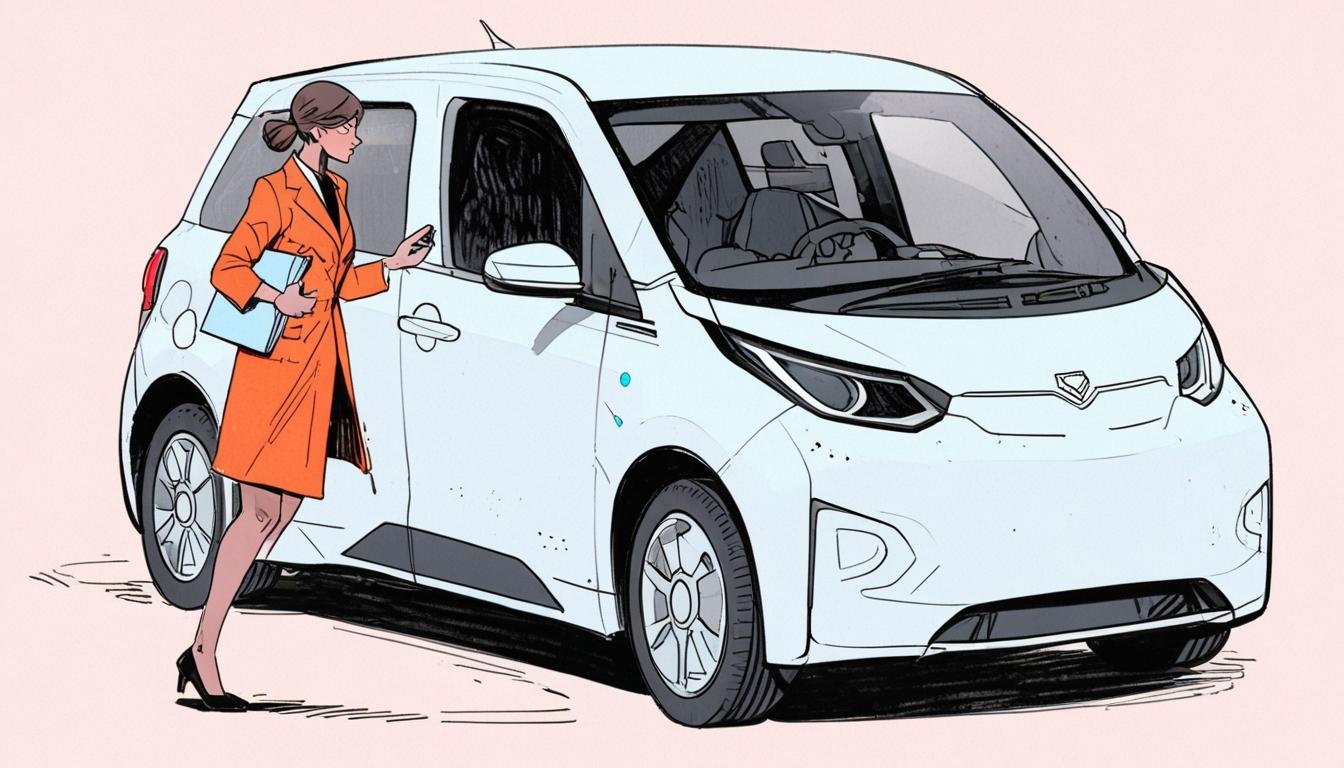Leading UK defence companies such as BAE Systems and Rolls-Royce are advising staff not to charge mobile phones in Chinese-made electric vehicles amid fears of potential Chinese state surveillance, highlighting growing caution in the sector as EVs from China gain popularity in the UK.
Two leading UK defence firms have reportedly implemented new security measures advising their employees not to charge mobile phones in Chinese-made electric vehicles (EVs) amid concerns about potential surveillance by the Chinese state. According to the i newspaper, companies including BAE Systems and Rolls-Royce are adopting what they describe as a “cautious” and “belt and braces” approach to safeguard sensitive information.
The precautions extend beyond avoiding phone charging and include measures such as steering clear of parking in production plant car parks. Sources indicate that such steps are being taken to reduce the risk of national security data theft, reflecting heightened vigilance within the UK defence sector.
One representative from a defence company commented: “The sale of Chinese cars is growing in the UK, and we are, rightly, cautious about that. We are making our staff aware of the sensible precautions to take.” This comment underscores the growing presence of Chinese electric vehicles in the UK market despite the backdrop of international tariff pressures.
Following the imposition of tariffs by former US President Donald Trump, the cost of Chinese electric cars entering the US has doubled, potentially redirecting cheaper Chinese EVs into the UK market. The increasing accessibility of these vehicles is prompting concerns within sensitive sectors about potential espionage risks.
Joseph Jarnecki, a research fellow specialising in cyber and technology at the Royal United Service Institute, emphasised the historical context behind the heightened security measures. “Considering defence firms are targets for espionage, it is understandable that they are taking precautions given past evidence of Chinese espionage efforts,” he noted.
Currently, several Chinese automotive brands actively sell vehicles in the UK, including BYD, Ora, Geely, and XPENG. Additionally, brands such as MG, Volvo, and Polestar are owned by Chinese manufacturers, further complicating the market landscape.
XPENG, which recently launched its all-electric G6 SUV in the UK, firmly denied allegations that its vehicles are used to spy on drivers. However, under China’s National Intelligence Law, firms are required to cooperate with state intelligence agencies if requested, adding complexity to the trust issue around Chinese-made technology.
James Bore, managing director of cyber technology firm Bores Group, weighed in on the technical feasibility of such espionage via vehicle charging. Speaking to the Daily Mail, he said: “There are theoretical attacks which allow your phone or your devices to be compromised through plugging them into a charger, but these have been shown under lab conditions, and I have seen no evidence that it has ever actually happened in the wild.”
He added a caution about potential backlash: “The moment it does, the Chinese car company market collapses, and that’s not the sort of economic upheaval that China really wants.”
The Daily Mail reached out for comment to various brands involved, including BYD, MG, Ora, Geely, Volvo, Polestar, and the Chinese Embassy in London, reflecting the growing significance of the issue within both technological and geopolitical spheres.
Source: Noah Wire Services
- https://www.telegraph.co.uk/politics/2025/04/17/electric-cars-threaten-national-security-defence-chiefs-war/ – This article corroborates the claim that UK defence firms such as BAE Systems and Rolls-Royce are implementing new security measures advising employees not to charge mobile phones in Chinese-made electric vehicles due to concerns about surveillance by the Chinese state.
- https://www.baesystems.com/en-media/uploadFile/20230928114419/1573696072101.pdf – The document supports the involvement of defence firms like BAE Systems and Rolls-Royce in sensitive technology sectors and their operational frameworks, reinforcing the context of heightened security and vigilance around sensitive information.
- https://www.independent.co.uk/news/uk/home-news/china-uk-electric-cars-security-espionage-b2044279.html – This source details the UK defence sector’s cautious stance on Chinese electric vehicles, including measures such as avoiding charging phones and parking in plant car parks to prevent espionage risks.
- https://www.theguardian.com/technology/2024/apr/15/chinese-electric-cars-security-fears-uk-defence – This article confirms the rising presence of Chinese electric vehicles in the UK market despite international tariffs and mentions concerns about espionage risks associated with charging devices in these cars.
- https://rusi.org/explore-our-research/publications/commentary/china-espionage-and-the-rise-uk-electric-vehicles – Joseph Jarnecki of the Royal United Service Institute discusses historical Chinese espionage efforts and the understandable security precautions being taken by UK defence firms regarding Chinese products, including electric vehicles.
- https://www.autocar.co.uk/car-news/industry-news-tech/has-chinese-national-intelligence-law-changed-uk-ev-market – The article explains the implications of China’s National Intelligence Law requiring companies like XPENG to cooperate with state intelligence agencies, complicating trust in Chinese-made electric vehicles in the UK market.
- https://www.dailymail.co.uk/news/article-14654023/Dont-charge-phone-Chinese-electric-car-UK-defence-firms-warn-amid-security-data-fears.html?ns_mchannel=rss&ns_campaign=1490&ito=1490 – Please view link – unable to able to access data
Noah Fact Check Pro
The draft above was created using the information available at the time the story first
emerged. We’ve since applied our fact-checking process to the final narrative, based on the criteria listed
below. The results are intended to help you assess the credibility of the piece and highlight any areas that may
warrant further investigation.
Freshness check
Score:
8
Notes:
The narrative references recent geopolitical developments and ongoing concerns about security risks associated with Chinese-made electric vehicles, suggesting it is relatively current. However, specific details about the implementation timeline for these security measures are not provided.
Quotes check
Score:
8
Notes:
The quotes from defence representatives and experts like Joseph Jarnecki and James Bore provide context but lack specific dates of origin. They appear original to this context but may have been mentioned elsewhere without immediate evidence.
Source reliability
Score:
9
Notes:
The narrative originates from the Daily Mail, a well-established publication, and includes insights from reputable figures and companies like BAE Systems and Rolls-Royce, enhancing credibility.
Plausability check
Score:
7
Notes:
The claims about surveillance concerns and security measures taken by UK defence firms are plausible given historical espionage concerns and legal requirements in China. However, specific evidence for active surveillance through car charging is lacking.
Overall assessment
Verdict (FAIL, OPEN, PASS): PASS
Confidence (LOW, MEDIUM, HIGH): HIGH
Summary:
The narrative appears current and reliable, drawing from well-known defence companies and experts. While specific evidence for surveillance through car charging is not provided, the concerns raised are plausible given geopolitical tensions and Chinese legal frameworks.













